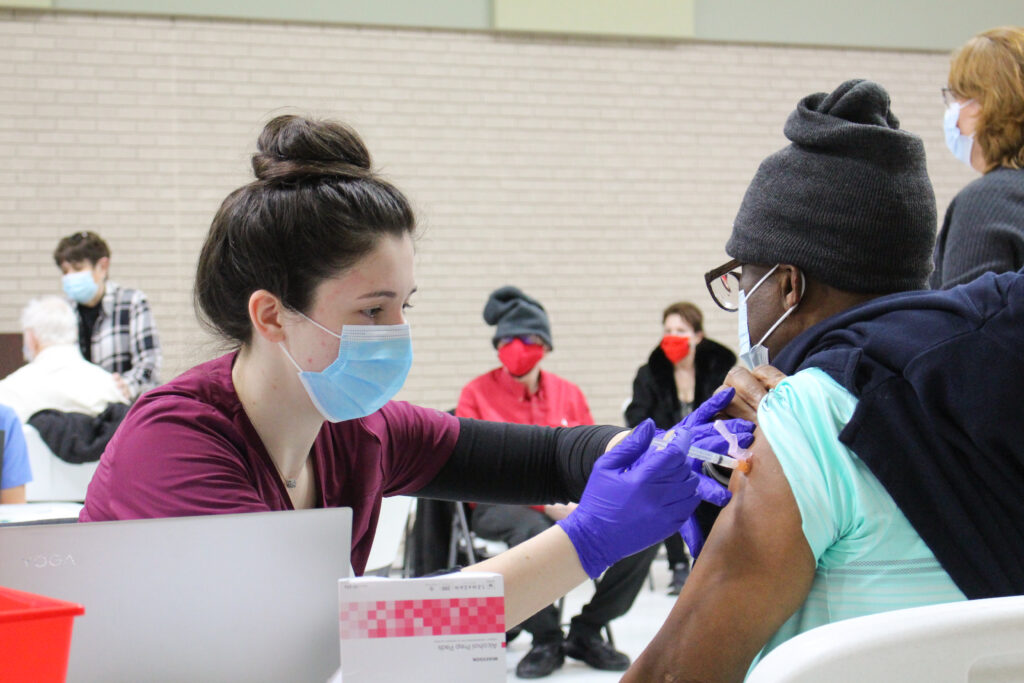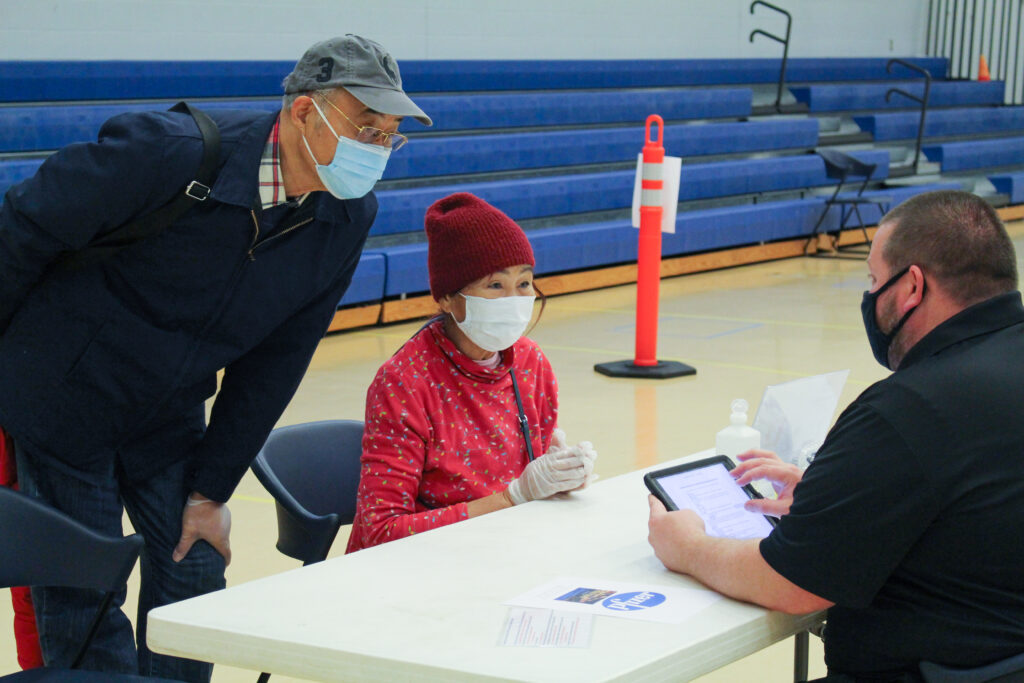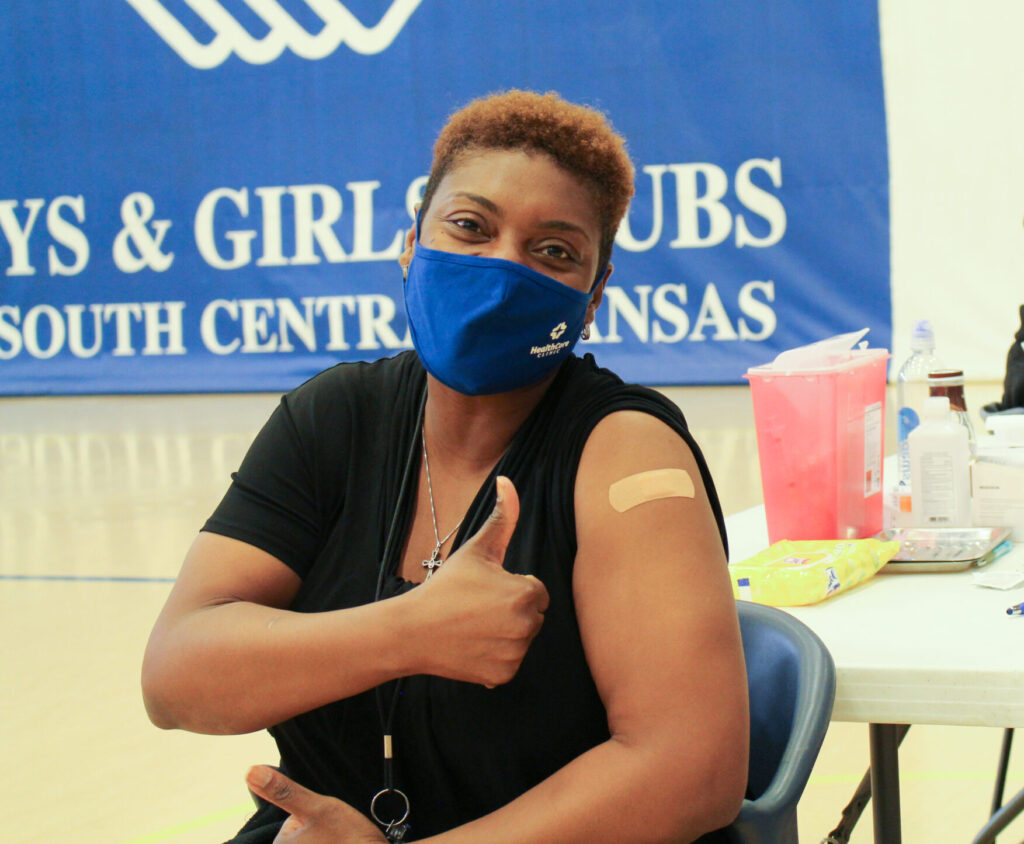Are COVID-19 vaccines safe for kids?
Yes. COVID-19 vaccines are safe for anyone 6 months or older. There are different doses depending on age groups.
COVID-19 vaccines have been recommended for children aged 6 months–5 years since June 2022; approximately one million doses were administered to persons in this age group during June–August 2022. On October 29, 2021, the U.S. Food and Drug Administration (FDA) authorized the use of the Pfizer-BioNTech COVID-19 Vaccine for the prevention of COVID-19 to include children ages 5 through 11. The authorization was based on the FDA’s thorough and transparent evaluation of the data that included input from independent advisory committee experts who overwhelmingly voted in favor of making the vaccine available to children in this age group.
What is a Booster Shot?
Booster shots provide additional protection against COVID-19 and help to strengthen protection against severe disease in populations at high risk for exposure to COVID-19 or complications from severe illness.
Kansas Department of Health & Environment (KDHE) and the State of Kansas have approved COVID-19 booster shots for people age 6 months and older.
- Pfizer Booster Shots
- AGE 6 MONTHS—4 YEARS
- Second dose (Primary Series) 3-8 weeks after being fully vaccinated.
- Third dose (Primary Series) at least 8 weeks after the second dose.
- AGE 5—11 YEARS
- Second dose (Primary Series) 3-8 weeks after being fully vaccinated.
- Third dose at least 2 months after the second dose. Children age 5 can only get the Primary Series booster. Children ages 6-11 can get Pfizer, Pfizer bivalent, or Moderna.
- AGE 12—17
- Second dose (Primary Series) 3-8 weeks after being fully vaccinated.
- Third dose at least 2 months after the second dose. Can get Pfizer, Pfizer bivalent, or Moderna.
- AGE 18 & OLDER
- Second dose (Primary Series) 3-8 weeks after being fully vaccinated.
- Third dose at least 2 months after the second dose or last booster. Can get Pfizer, Pfizer bivalent, or Moderna
- Moderna Booster Shots
- AGE 6 MONTHS—5 YEARS
- Second dose (Primary Series) 4-8 weeks after being fully vaccinated.
- Third dose: Children 5 years of age can get a Pfizer booster at least 2 months after their 2nd dose. (Children 6 months to 4 years are not recommended for a booster.)
- AGE 6—17 YEARS
- Second dose (Primary Series) 4-8 weeks after being fully vaccinated.
- Third dose at least 2 months after the second dose. Can get Pfizer, Pfizer bivalent, or Moderna.
- AGE 18 & OLDER
- Second dose (Primary Series) 4-8 weeks after being fully vaccinated.
- Third dose at least 2 months after the second dose or last booster. Can get Pfizer, Pfizer bivalent, or Moderna.
What are the updated bivalent boosters?
The updated (bivalent) boosters are called “bivalent” because they protect against both the original virus that causes COVID-19 and the Omicron variant BA.4 and BA.5.
Previous boosters are called “monovalent” because they were designed to protect against the original virus that causes COVID-19. They also provide some protection against Omicron, but not as much as the updated (bivalent) boosters.
The virus that causes COVID-19 has changed over time. The different versions of the virus that have developed over time are called variants. Learn more about variants of the COVID-19 virus.
Two COVID-19 vaccine manufacturers, Pfizer and Moderna, have developed updated (bivalent) COVID-19 boosters.
Can you use any COVID-19 vaccine for a booster shot?
Yes. You can “mix-and-match” booster shots. Any of the COVID-19 vaccines can be used for booster vaccination, regardless of the vaccine you initially received.
What is a 3rd Dose?
Like booster shots, a 3rd dose provides additional protection against COVID-19 and helps to strengthen protection against severe disease. Regardless of which vaccine you were initially administered, you will be given a booster dose of either the Pfizer-BioNTech (Comirnaty) or Moderna COVID-19 vaccine.
Are there side effects from getting the COVID-19 vaccine?
While many people experience little to no side effects after getting the COVID-19 vaccine, most people will experience mild side effects such as soreness at the site of the injection, a headache, chills, and/or a fever. Most people report these mild side effects lasting for 24 – 48 hours. These reactions are normal, they show that the vaccine is working, and are a sign that your body is developing antibodies.
A very small number of people have had an allergic reaction after vaccination. This is extremely rare, and when it happens, vaccine providers have medicines available to effectively, and immediately, treat the reaction. When you are administered your COVID-19 vaccine, you will be asked to wait for 15-30 minutes after while you are monitored to ensure you do not have an allergic reaction.
Who should not get the COVID-19 vaccine?
If you have had a severe allergic reaction to any ingredient in an mRNA COVID-19 vaccine, you should not get either of the currently available mRNA COVID-19 vaccines. If you had a severe allergic reaction after getting the first dose of an mRNA COVID-19 vaccine, CDC recommends that you should not get the second dose.
If you have had an immediate allergic reaction—even if it was not severe—to a vaccine or injectable therapy for another disease, ask your doctor if you should get a COVID-19 vaccine. Your doctor will help you decide if it is safe for you to get vaccinated.
If you recently had COVID-19, you may consider delaying your next vaccine dose (whether a primary dose or booster) by 3 months from when your symptoms started or, if you had no symptoms, when you first received a positive test.
Reinfection is less likely in the weeks to months after infection. However, certain factors, such as personal risk of severe disease, or risk of disease in a loved one or close contact, local COVID-19 Community Level, and the most common COVID-19 variant currently causing illness, could be reasons to get a vaccine sooner rather than later.


